Govt took limited steps to prosecute rights abuses
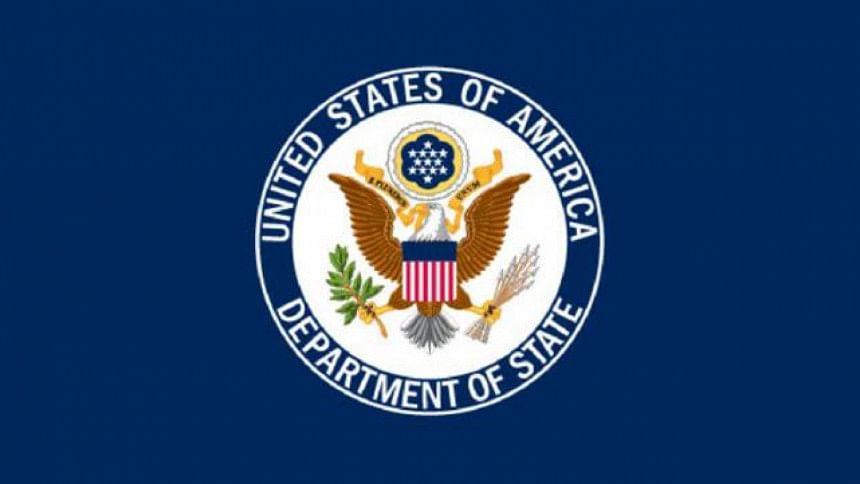
Bangladesh government took limited measures to investigate and prosecute cases of extrajudicial killings and enforced disappearances, said the US State Department in its 2017 Country Reports on Human Rights Practices.
“There were reports of widespread impunity for security force abuses… public distrust of police and security services deterred many from approaching government forces for assistance or to report criminal incidents,” it said.
The annual report, released by the US Acting Secretary of State John J Sullivan in Washington on Friday, considered extrajudicial killings, torture, arbitrary or unlawful detentions, and forced disappearances by government security forces as the most significant human rights issues in Bangladesh.
It also listed restrictions on civil liberties, including freedom of speech and press; the activities of NGOs; a lack of freedom to participate in the political process; corruption; and violence and discrimination based on gender, religious affiliation, caste, tribes as other rights issues.
“Trafficking in persons remained a serious problem; as did restrictions on worker's rights and the worst forms of child labour,” the report says.
EXTRA-JUDICIAL KILLINGS
According to the report, though Bangladesh's constitution provides for the rights to life and personal liberty, suspicious deaths occurred during raids, arrests, and other law enforcement operations.
“Security forces frequently claimed they took a suspect in custody to a crime scene or hideout late at night to recover weapons or identify conspirators and that the suspect was killed when his conspirators shot at police,” said the report.
The government usually described these deaths as “crossfire killings,” “gunfights,” or “encounter killings,” terms used to characterise exchanges of gunfire between the Rapid Action Battalion (RAB) or other police units and criminal gangs, it said.
Human rights organisations and media outlets claimed many of these “crossfire” incidents actually constituted extrajudicial killings.
It said in some cases law enforcement units detained, interrogated, and tortured suspects, brought them back to the scene of the original arrest, executed them, and ascribed the death to lawful self-defense in response to violent attacks.
It says Ain O Salish Kendra (ASK) reported that security forces killed 162 individuals in “crossfire” incidents. Another domestic human rights organisation, Odhikar, reported that security forces killed 118 individuals extra-judicially in the first 10 months of the year.
“It's something of concern to us…if we have information that a particular unit of the security forces is engaged in abuses (in Bangladesh and any other country), we can't train them or equip them under our law until the government brings the perpetrators of the abuse to justice,” said Michael G. Kozak, acting principal deputy assistant secretary at the Bureau of Democracy, Human Rights, and Labor in a press briefing.
DISAPPEARANCE
The report said following alleged disappearances, security forces released some individuals without charge, arrested some, while others were found dead or never found. ASK stated there were 60 enforced disappearances during the year.
In February, the Office of the UN High Commissioner for Human Rights published a report claiming at least 40 disappearances. The government did not respond to a request from the UN Working Group on Enforced Disappearances to visit the country.
High-ranking government officials repeatedly denied incidents of the enforced disappearance and claimed victims were hiding of their own accord. However, a July 4 judicial inquiry concluded that enforced disappearances occurred and ordered the Police Bureau of Investigation to take action regarding a disappeared person.
In April, Swedish Radio reported a secretly recorded interview with a senior RAB officer admitting that his unit routinely picked up individuals, killed them, and disposed of the bodies, the report said.
“While the government has mechanisms to investigate and punish abuse and corruption within the security forces, these mechanisms were not regularly employed,” the report added.
“Reluctance to bring charges against police also perpetuated a climate of impunity. Officers loyal to the ruling party occupied many of the key positions in the law enforcement agencies,” it added.
The report said human rights observers maintained that magistrates, attorneys, and court officials demanded bribes from defendants in many cases, or they ruled based on influence by or loyalty to political patronage networks.
“Corruption and a substantial backlog of cases hindered the court system, and the granting of extended continuances effectively prevented many defendants from obtaining fair trials,” it said.
FREEDOM OF EXPRESSION
The report said media were active and expressed a wide variety of views, but there were significant limitations on freedom of speech in Bangladesh. Some journalists self-censored their criticisms of the government due to harassment and fear of reprisal.
Media outlets which criticised the government experienced negative government pressure. Also, authorities, including intelligence services on some occasions, subjected journalists to physical attack, harassment, and intimidation, the report said.
In 2016, several high-profile individuals were charged with sedition, including BNP leader Khaleda Zia, television personality Mahmudur Rahman Manna, and reporter Kanok Sarwar. The government did not proceed with the prosecutions of Manna and Sarwar.
The law limits hate speech but does not define clearly what constitutes hate speech, which permits the government's broad powers of interpretation. Also, The Foreign Donation Act criminalises any criticism of constitutional bodies.
Independent journalists alleged that intelligence services influenced media outlets in part by withholding financially important government advertising and pressing private companies to withhold their advertising as well.
Privately owned newspapers usually enjoyed freedom to carry diverse views. Political polarisation and self-censorship remained a problem, however, the report added.
It said that on multiple occasions, government officials threatened privately owned television channels not to broadcast the opposition's activities and statements.
According to observers, the report says, daily newspapers Prothom Alo and The Daily Star were denied access to prime ministerial events because they published reports critical of the government and prime minister.
At the press briefing, Michael G Kozak said US has called for an impartial and fair trial of BNP Chief Khaleda Zia, and not to just let somebody be imprisoned for being a political opponent.
The US also has called for free and fair upcoming elections with international monitoring in Bangladesh, he said.
CORRUPTION
Bangladesh's law provides criminal penalties for corruption by officials, but the government did not implement the law effectively, and officials frequently engaged in corrupt practices with impunity, the State Department report said.
According to the Anti-Corruption Commission (ACC), 164 of the 2,704 filed cases were disposed of in the first eight months of the year. Of these, 110 resulted in conviction and 54 resulted in acquittal, while 360 cases against government officials, business leaders, and political leaders were stayed by the High Court, it added.
In some cases, the government allegedly used the ACC as a political tool, including having the ACC initiate or threaten inquiries into some businesspeople, newspaper owners, and civil society members for criticising the government, the report said.
It also said the ACC has dropped investigations of some politicians for amassing wealth unexplained by known sources of income after they stated they had made mistakes on their wealth affidavits.
The report said although human rights groups often sharply criticised the government, they also practiced some self-censorship.
Observers noted that a “culture of fear” had diminished the strength of the civil society, exacerbated by threats from extremists and an increasingly entrenched leading political party.
Mandated by the US Congress, the country reports provide policymakers with human rights conditions of nearly 200 countries.

 For all latest news, follow The Daily Star's Google News channel.
For all latest news, follow The Daily Star's Google News channel. 

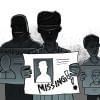

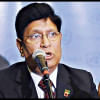
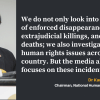
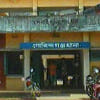


Comments